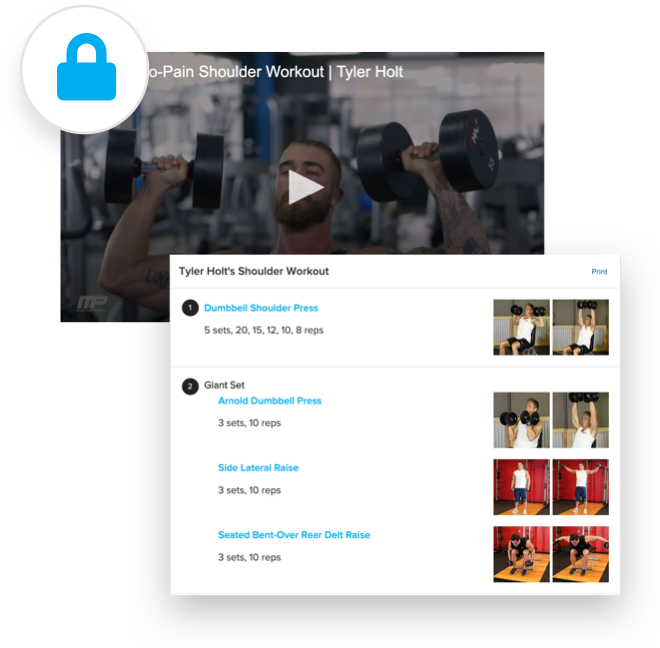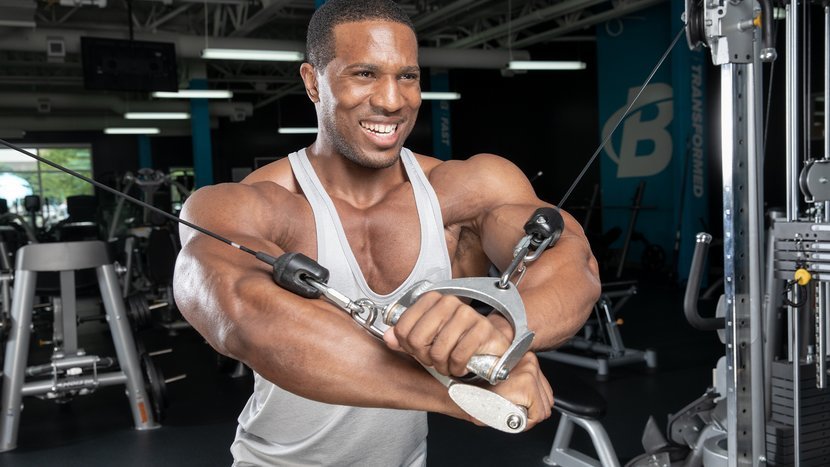Cellucor athlete Craig Capurso is back with his heaviest-volume challenge yet—and this is a guy known for his heavy-volume workouts!
Deadlifts and pull-ups are the only two exercises in this workout. Between pulling plates off the floor and pulling your body up to the bar, you'll be lifting tons of weight—literally—in this ultimate volume challenge.

BodyFit
$6.99/month- 2,500+ expert-created single workouts
- 3,500+ how-to exercise videos
- Detailed workout instruction
- Step-by-step workout tips
- Training at gym or at home
- Access to Workout Plans
- Access to Bodyfit App
- Store Discounts
Already have a Bodybuilding.com account with BodyFit? Sign In

What comes with BodyFit?

- Instructional Videos
Don't risk doing a workout improperly! Avoid injury and keep your form in check with in-depth instructional videos.
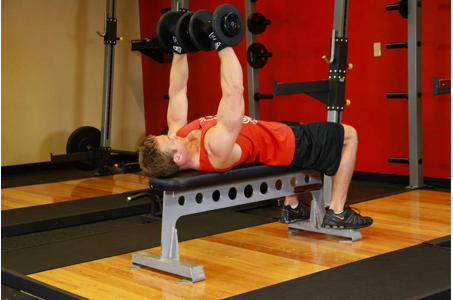
- How-to Images
View our enormous library of workout photos and see exactly how each exercise should be done before you give it a shot.
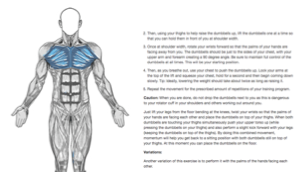
- Step-by-Step Instructions
Quickly read through our step-by-step directions to ensure you're doing each workout correctly the first time, every time.
Heavy Volume Goals
As Capurso warns, this is not a weekly workout, but something you can do every once in a while, such as once a month, to test yourself. He sets a goal of deadlifting 25,000 pounds off the floor, and pulling 20,000 pounds up to the bar.
Weighing in at approximately 220 pounds, Capurso knows he will have to do a lot of repetitions to reach his 20,000-pound pull-up goal. Using 315 pounds for his deadlift, Capurso performs five deadlifts per round followed by six pull-ups. He calculates he'll have to complete 15 rounds to reach his 45,000-pound target—plus a few extra reps.
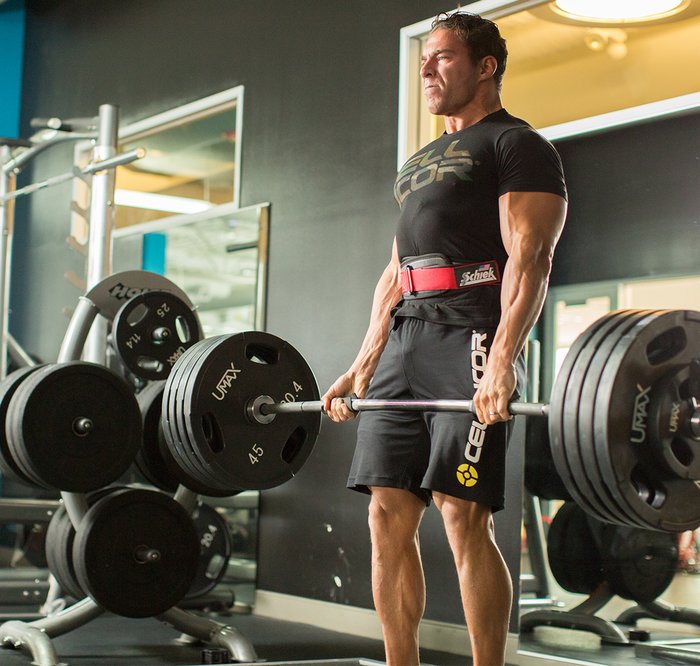
There is no time cap, and there is no limit on rest.
"This workout is going to take you as long as it takes," says Capurso, "and that's how you score yourself."
So should you do your deadlifts for touch-and-go reps, or as singles? If you're training for size or strength, Capurso recommends one rep at a time.
"I've done it either way," he says, "and one rep is just as challenging as letting the weight bounce off the floor."
If you're training for CrossFit or other performance lifting sports, continuous reps will be a better reflection of what you'll face in competition.
The total time it takes to complete this heavy-volume workout is how you score yourself and assess progress. You have the option to match Capurso pound-for-pound and rep-for-rep on this workout, but if you don't weigh 220 pounds, or you are already reeling at the thought of 315 for 15 rounds, you can calibrate this workout to match your body weight and strength level.

How to Make This Challenge Work for Any Lifter
Given that Capurso weighs in at 220 pounds and you perhaps don't, you may be asking whether his goal workload is appropriate for you. Good question! Of course, you could strap on a weight vest to get yourself up to his level, but that will get awkward—and awful—just a few rounds in.
Here's the simplest way: Pick a weight you can deadlift for about 10 strict, clean reps, or if you prefer percentages, around 70-75% of your 1RM. Perform 15 rounds of 5 reps, each one followed by a set of pull-ups that leaves you at least 2-3 reps short of failure. Even if you're a pull-up pro, limit yourself to no more than 8 reps per set, simply because you've got so many rounds to go. See how long it takes you, and try to beat that time in the future. Simple enough, right?

Now here's a slightly more detailed—and potentially brutal—version: Structure the workout around the total deadlift poundage, and just keep hitting between 4 and 8 pull-ups between all rounds of the deadlifts. Then, work backward from your deadlift target to determine how many reps you need to get there. It may take fewer than 15 rounds, but it may take far more. Here's how you could do it, for three different levels of badassery:
- Human level: 15,000 total pounds on the deadlift
- Superhuman level: 20,000 total pounds on the deadlift
- Capurso level: 25,000 total pounds on the deadlift
How to get to 15,000 pounds
- 66 reps at 225 pounds (or 13 rounds of 5 reps, plus a single)
- 52 reps at 285 pounds (or 10 rounds of 5 reps, plus a double)
- 47 reps at 315 pounds (or 9 rounds of 5 reps, plus a double)
How to get to 20,000 pounds
- 63 reps at 315 pounds (or 12 rounds of 5 reps, plus a triple)
- 70 reps at 285 pounds (or 14 rounds of 5 reps)
- 88 reps at 225 pounds (or 17 rounds of 5 reps, plus a double)
How to get to 25,000 pounds
- 79 reps at 315 pounds (or 15 rounds of 5 reps, plus 4 reps)
- 87 reps at 285 pounds (or 17 rounds of 5 reps, plus a double)
- 111 reps at 225 pounds (or 22 rounds of 5 reps, plus a single)
Of course, this is assuming you can hit all 5 reps in every set. Toward the end, you may have numerous sets where 2-3 is all you can muster. If so, that's fine! Keep going, keep tracking your number, and you'll get there. Then, the next time you perform the workout, try to do it in fewer rounds and less time.
No matter how you craft it, it'll be a tough mountain to climb!

